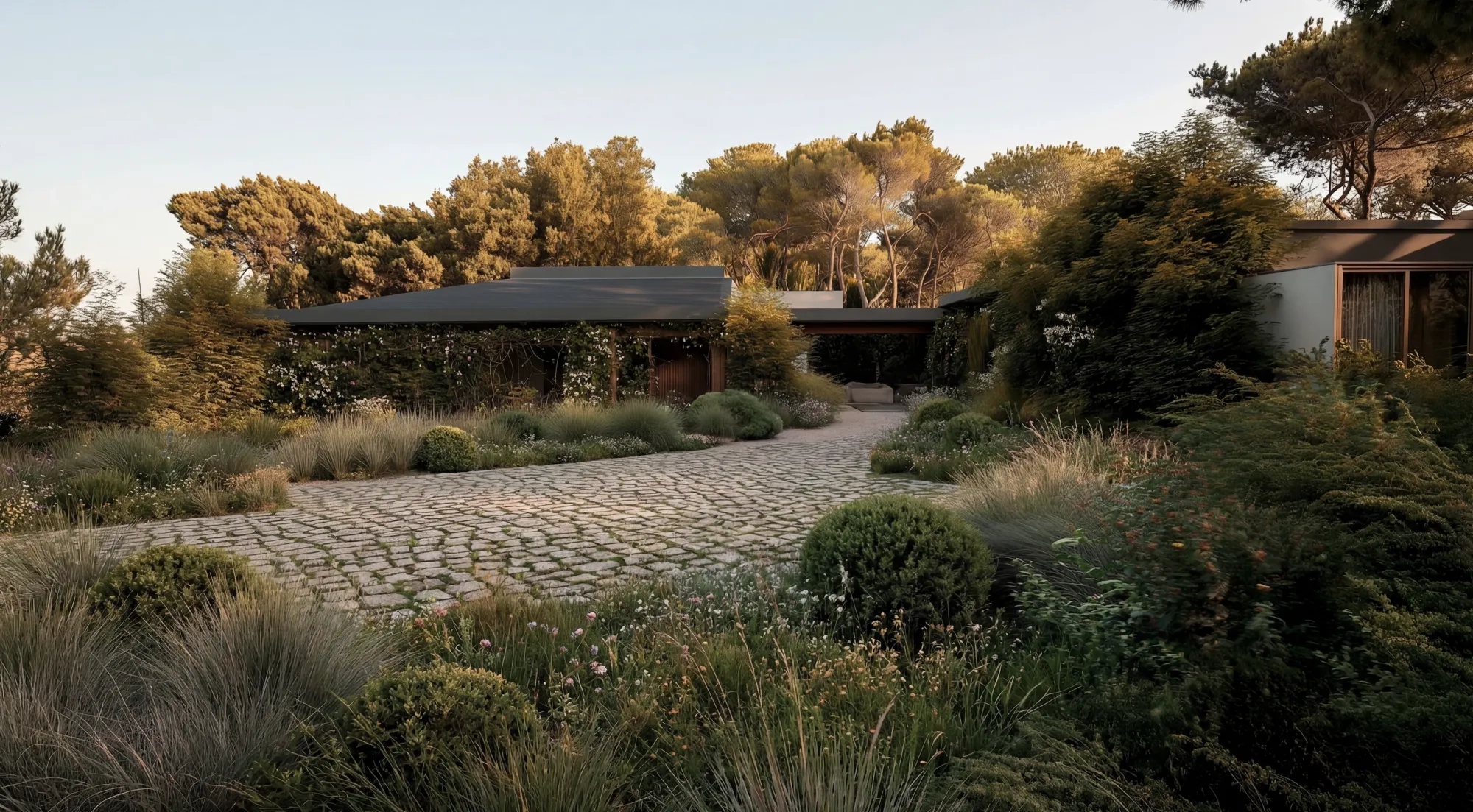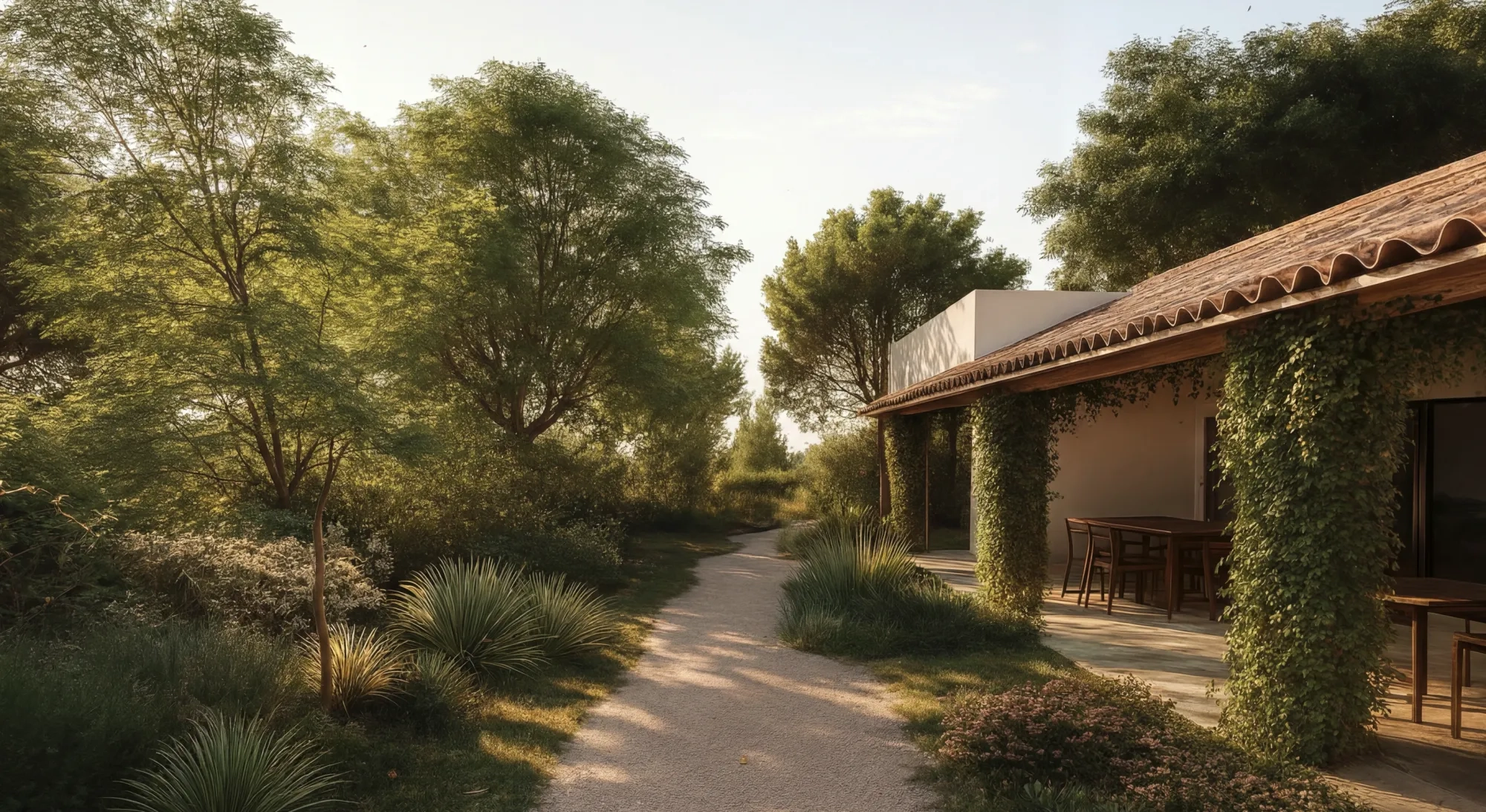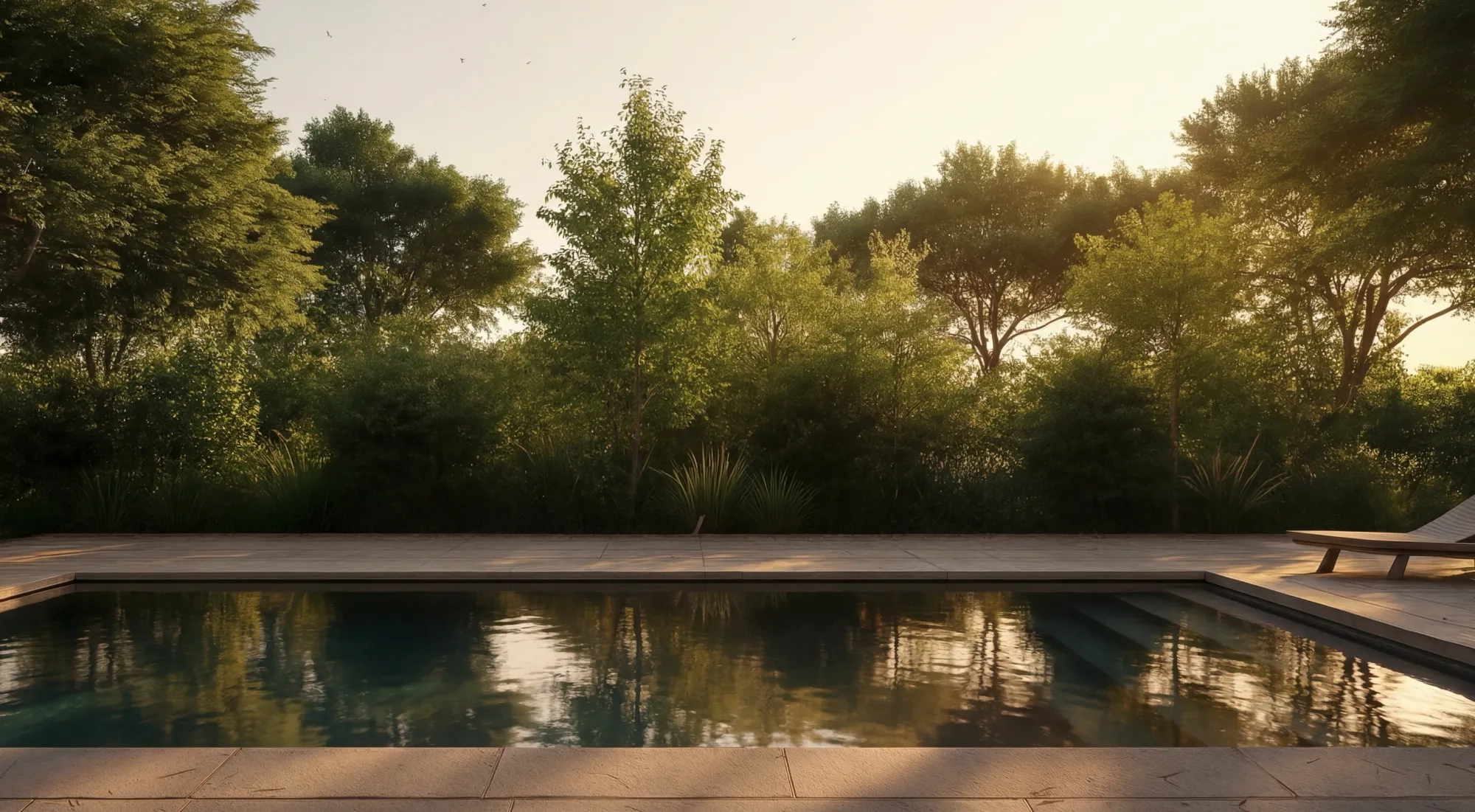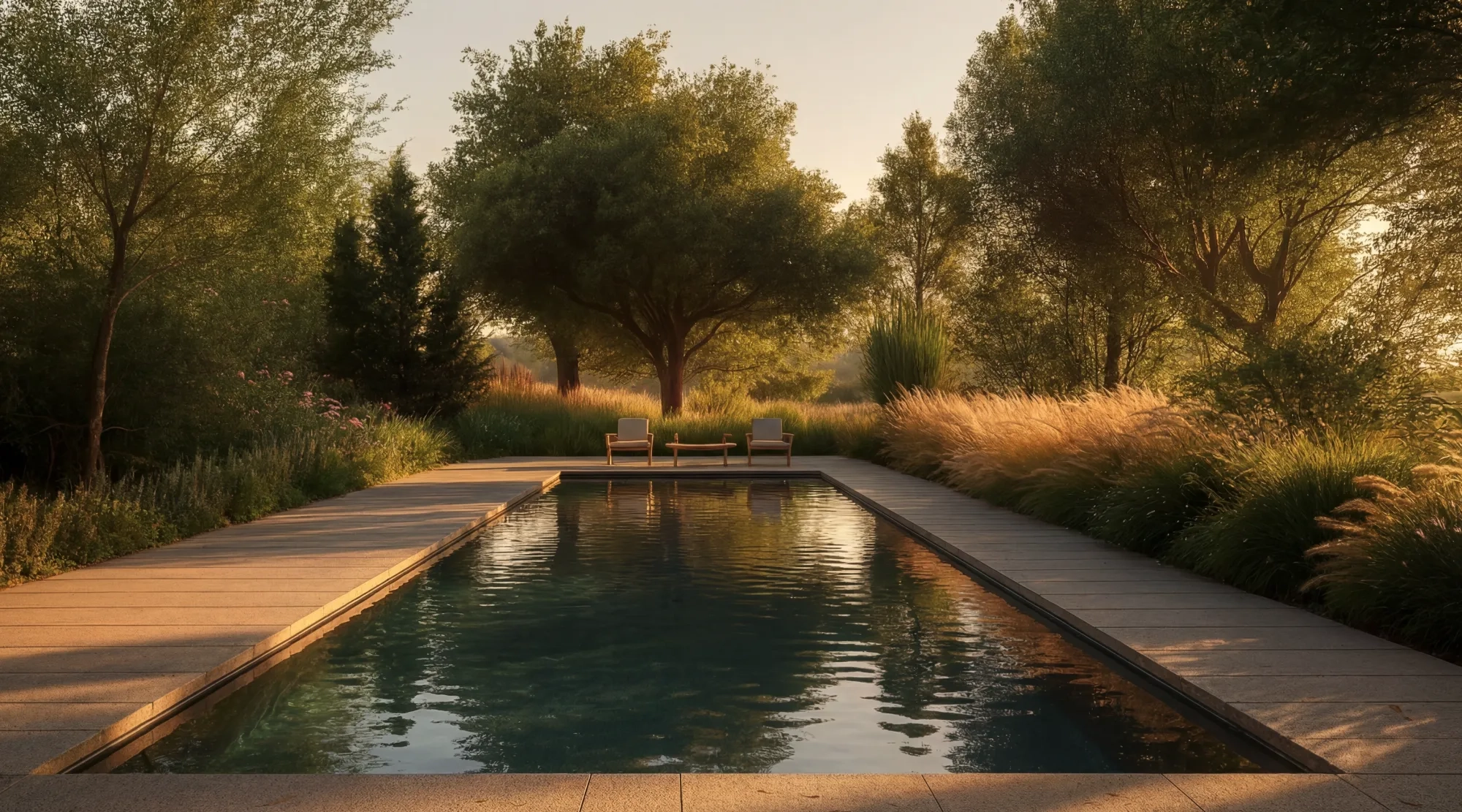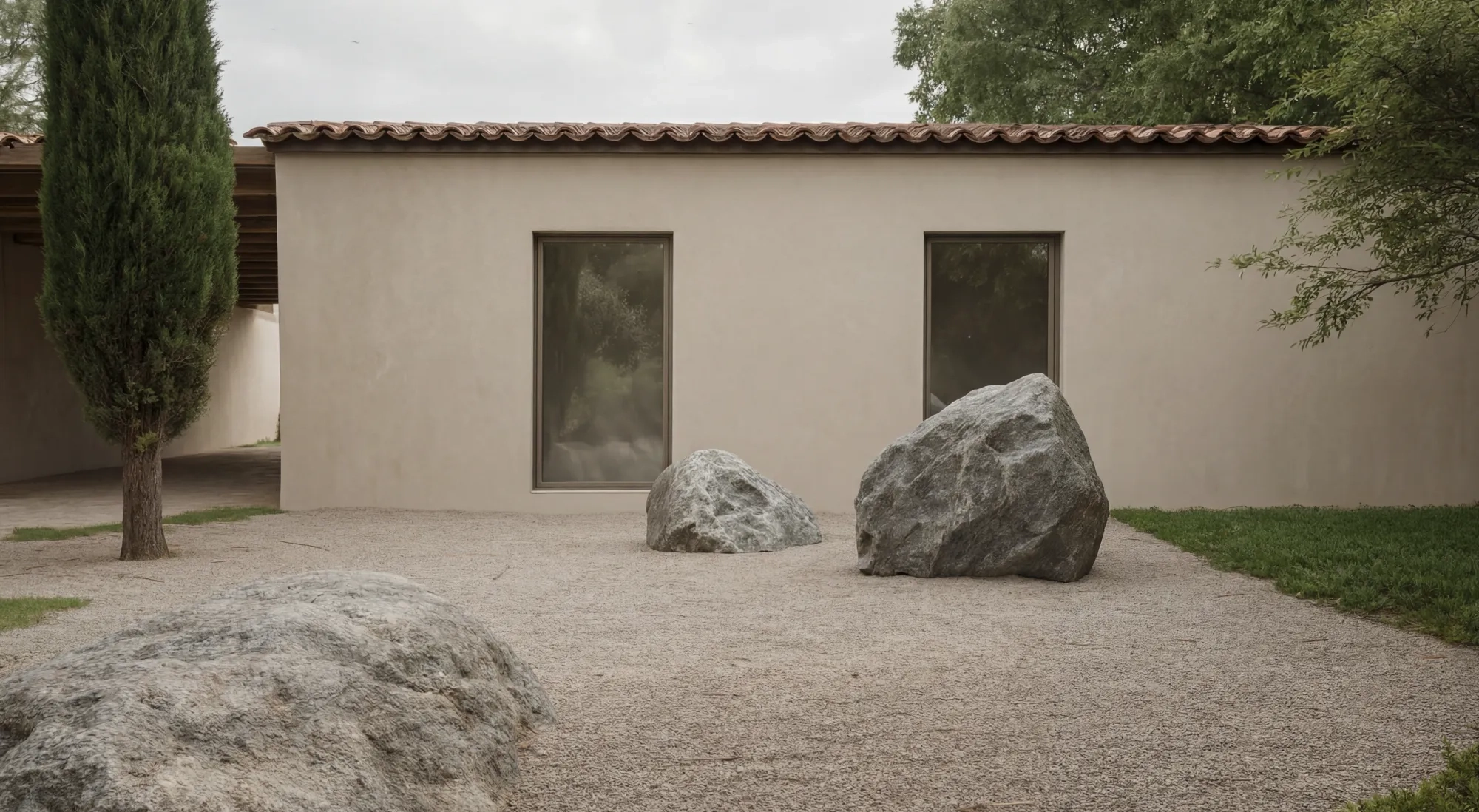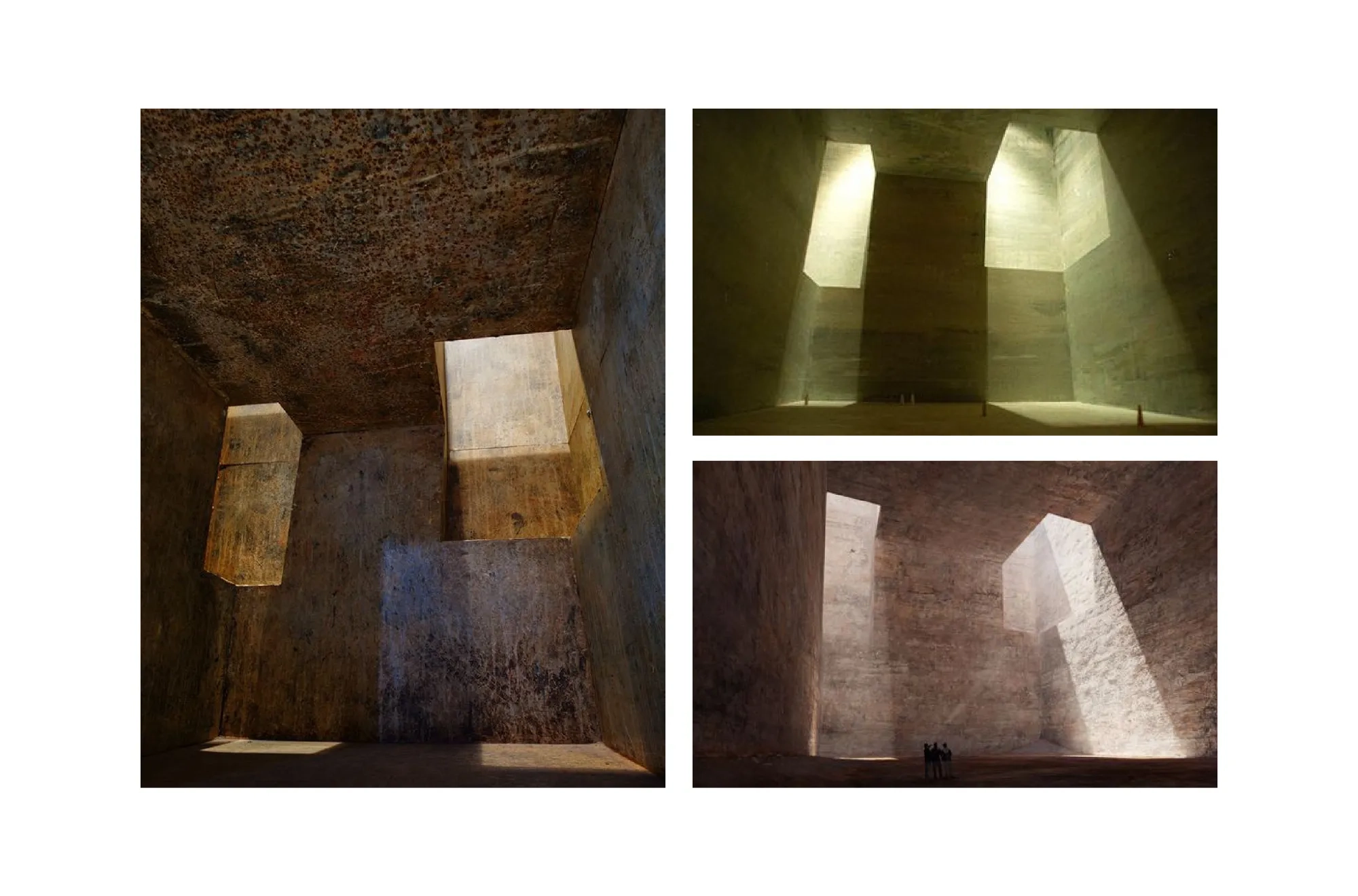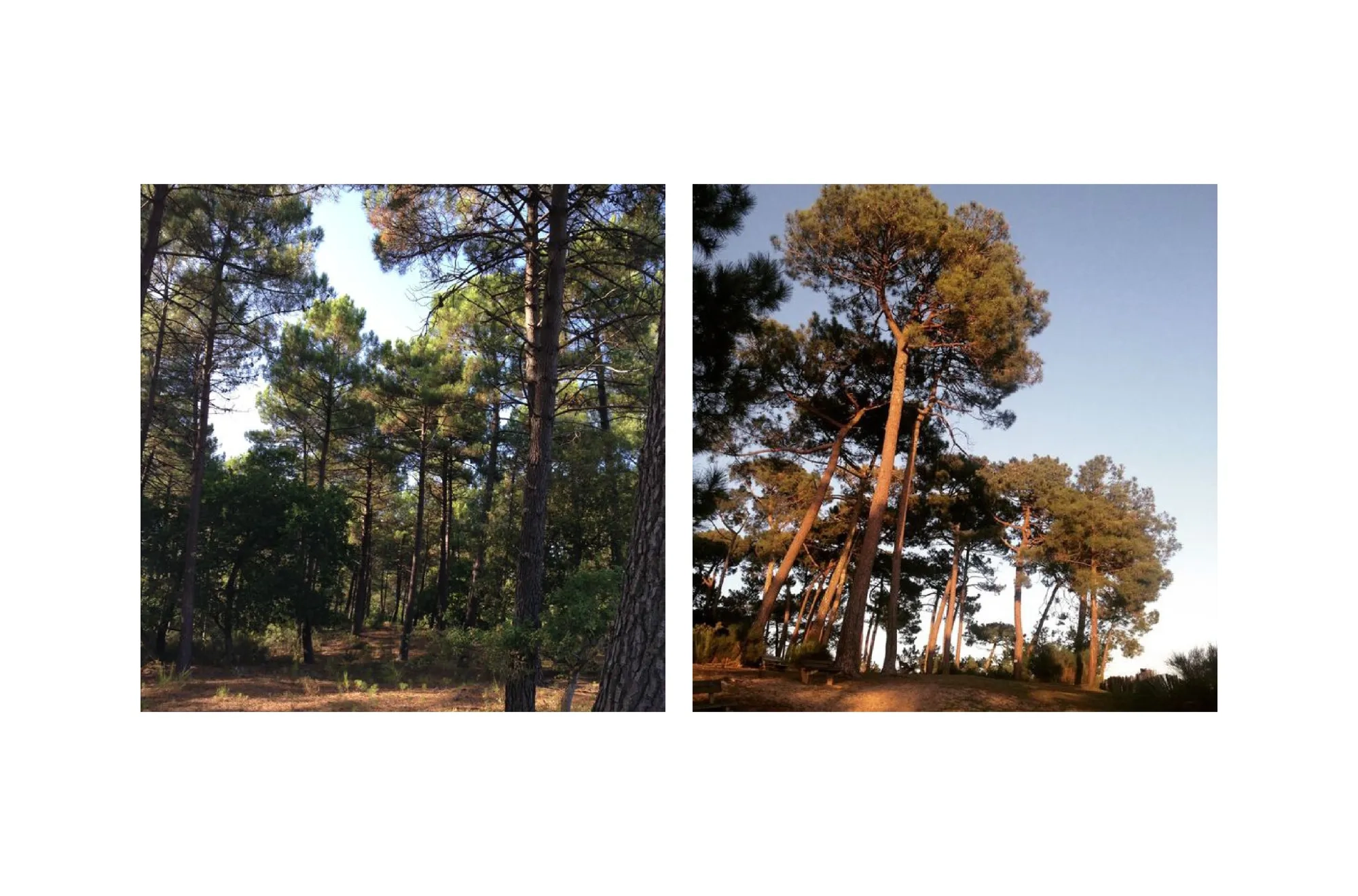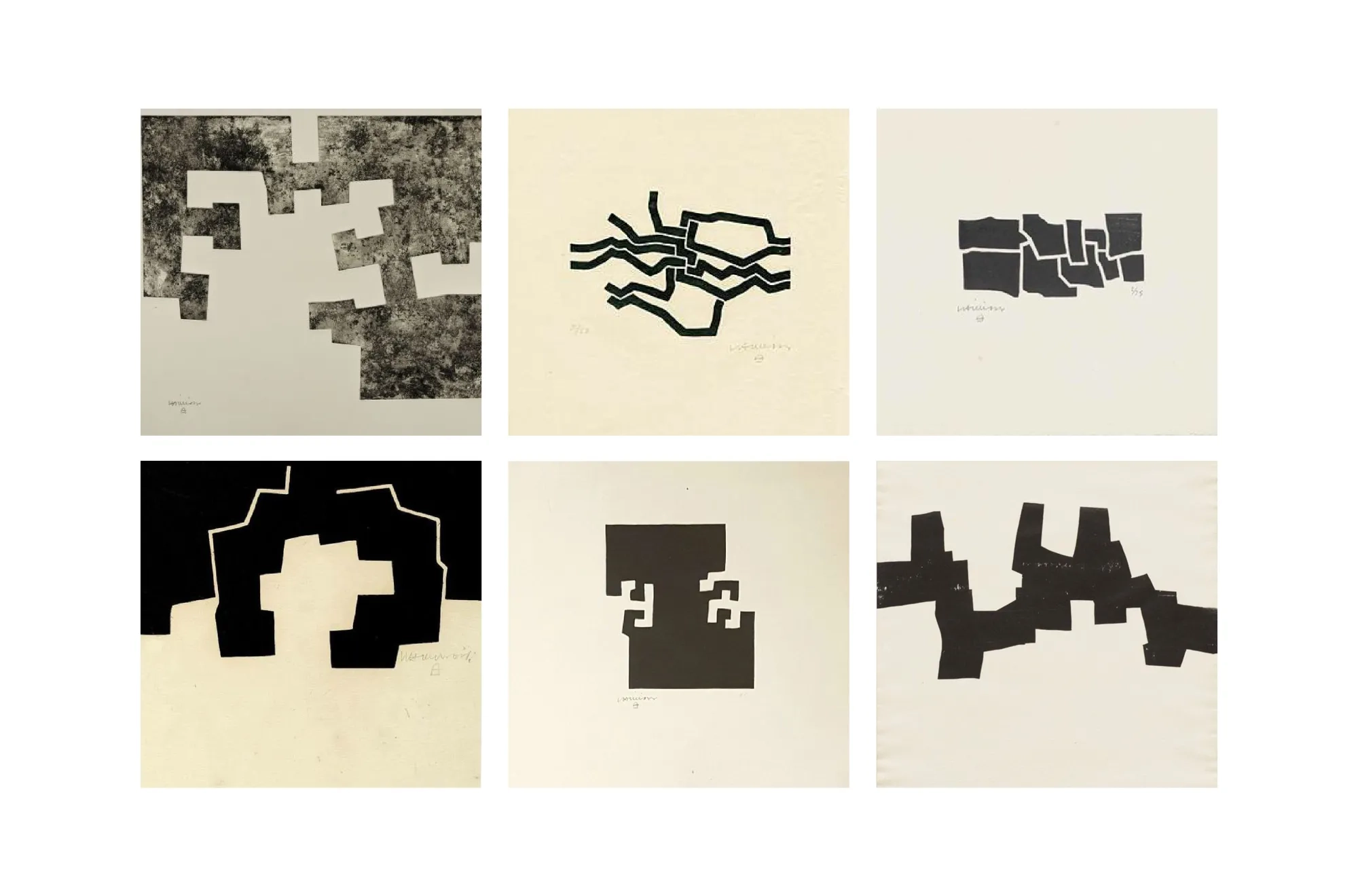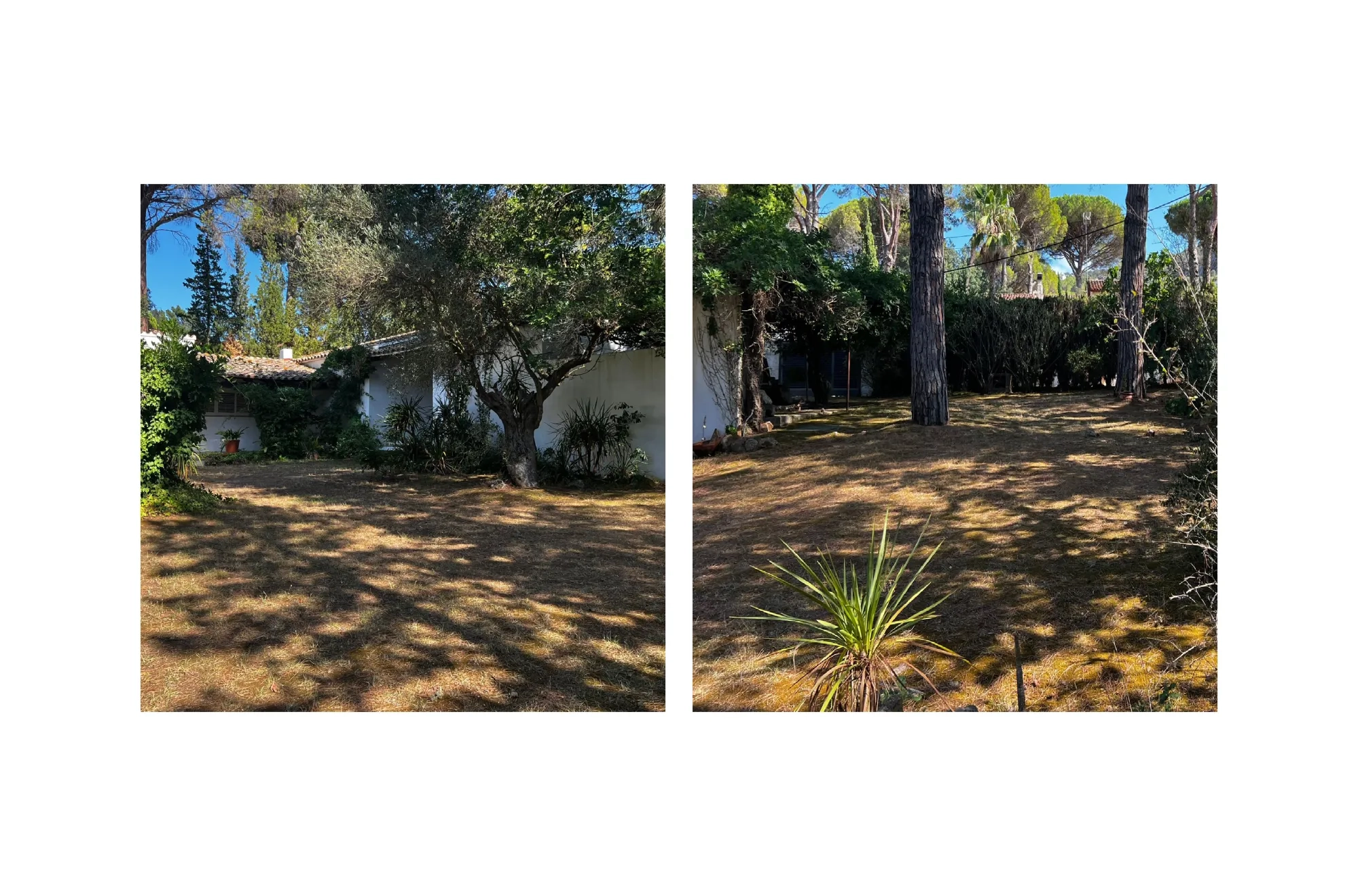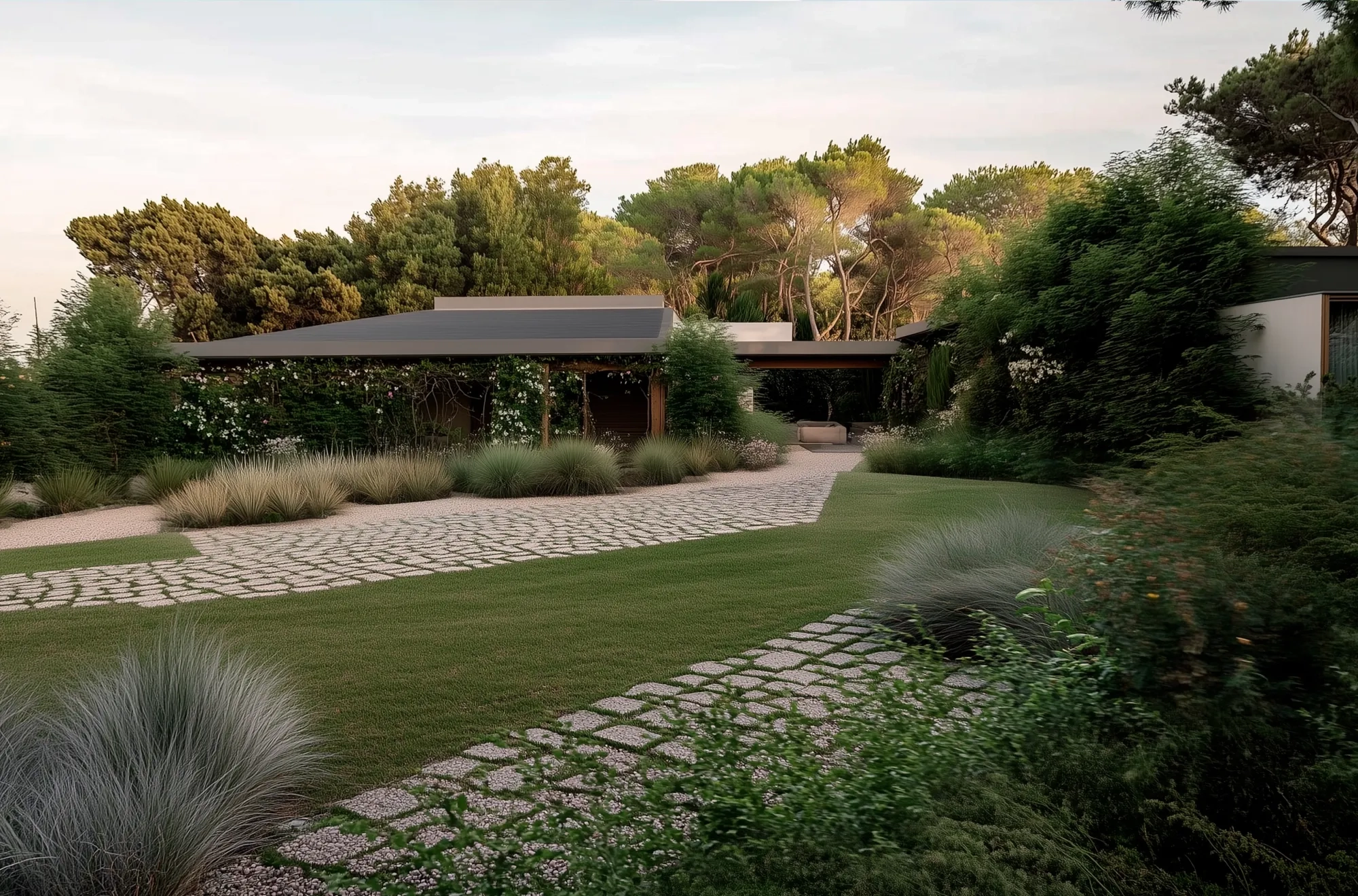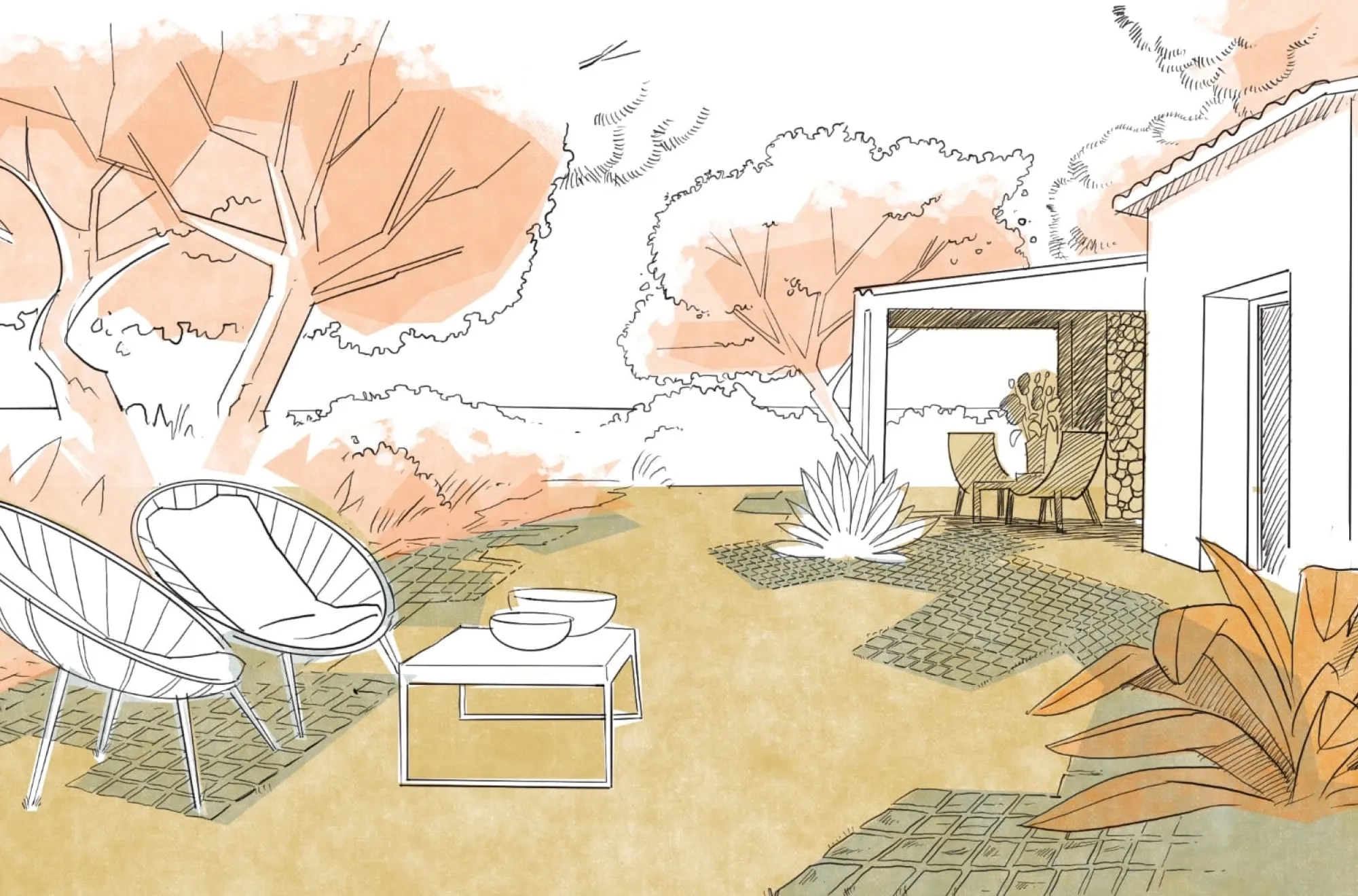A Garden of Shadows in the Costa Brava
Date
2023-2024
Location
Costa Brava (Spain)
Type
Residential
Trees
25
Area
2.000 m2
Status
Construction
Influenced by the meditations of Tanizaki and the expressiveness of Chillida, our project is founded on the interrelation of light, shadow, and time. This trinity, transcending pure aesthetics, becomes an inquiry into our perception of the environment. Our design attempts to capture this conversation between the visible and the invisible, where shadow stands not only as the absence of light but also as a defining agent of space.
The creative process was above all an exercise in respect. Arriving at this garden, we found nature that had, by itself, composed a masterpiece over the passage of time. Centenary trees and vegetation bearing the imprint of time spoke to us of a space that had reached its perfection with minimal intervention.
The task was not to transform, but to reveal and enhance the inherent beauty of that garden, whose apparent neglect concealed the essence of its identity. The proposal was clear: to preserve the essence and the memory, allowing time to continue being the protagonist of the landscape. We sought to integrate a contemporary design that would not alter the unique character of the place but would dialogue with it and its history.
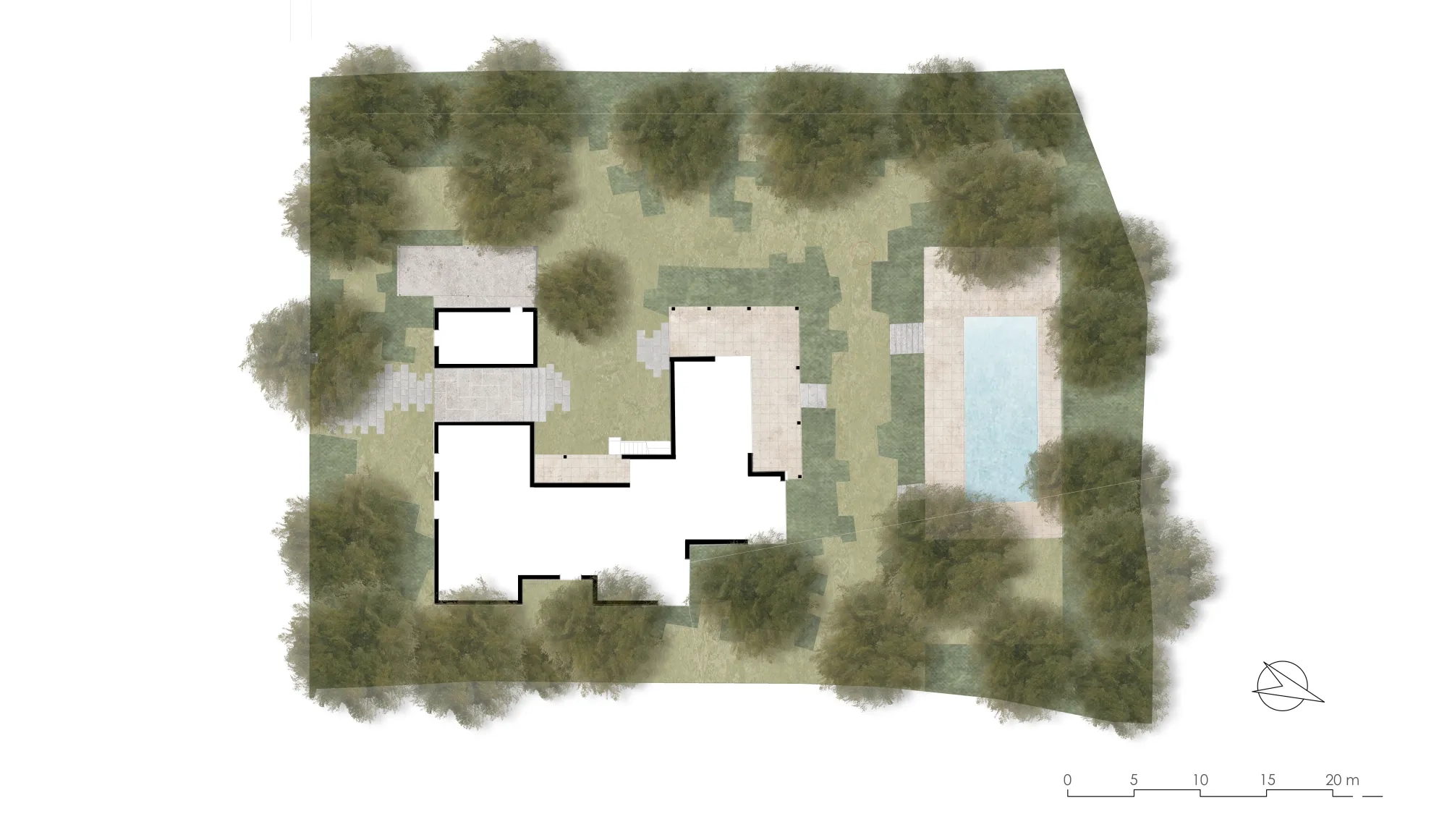
ABOUT THE GARDEN DESIGN
When we first arrived at the garden, we observed how the sunlight wrote a pattern of shadows over the moss, that living tapestry that the garden had woven by itself. That observation was key: any change should not disturb that natural spectacle.
Aware of the water limitations of the region, we opted for the use of the garden's own moss instead of grass. The design of the paving stones, evoking lines influenced by the work of Chillida, creates a free space where trees can project their shadows. These move, revealing silhouettes that transform as the sun advances. This method not only values the light of the Costa Brava through its contrast, the shadow but also proposes a reflection on how the passage of time and movement enrich our interpretation of space.

ABOUT CHILLIDA
The philosophical research on time became the compass of our design. Our approach contemplates time not merely as a sequence of moments, but as the spirit that defines the space in which we live. Our project is, in essence, a conversation with the history of the place.
Influenced by the work of Eduardo Chillida, we aspire to reflect in the garden design the idea that time acts as the artisan of space, sculpting it as the artist does when bringing their work to life. Chillida also addresses the essence of space and form in his work, exploring the intimate relationship between the void, matter, and its relationship with the landscape. This reflection on how art interacts with its environment reveals a dialogue between human creation and nature, where the void is not absence, but an element full of expressive possibilities.

Chillida immerses himself in the philosophy of presence and absence, using metal and stone not only as materials but as mediators between the human being and the space they inhabit. Inspired by Heidegger's phenomenology, his work invites deep contemplation of our place in the world, underscoring the importance of harmony between man, art, and nature. Chillida's work thus becomes a gateway to understanding how space and time shape our experience of the environment, offering new ways to understand and coexist with the landscape.
IN PRAISE OF SHADOWS
"In Praise of Shadows" by Jun'ichirō Tanizaki is a philosophical reflection that invites us to reconsider our relationship with light and shadow in the context of aesthetics and culture. Tanizaki argues that there lies a subtle and profound beauty in the shadows, often overlooked in societies that favor clarity and light. The work emphasizes how Japanese traditions have learned to appreciate and cultivate this beauty in architecture, art, and everyday life, through the creation of spaces and objects that are fully revealed in the dimness.
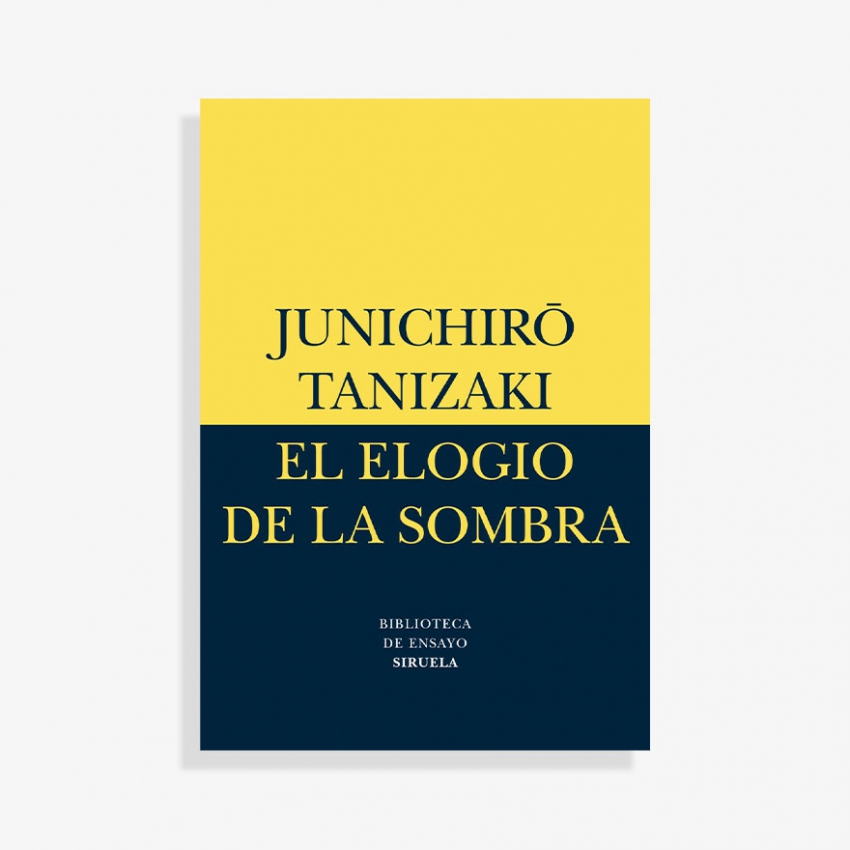
The essay is also a meditation on the clash and harmony between Eastern and Western cultures, reflected in their different ways of perceiving and valuing light. Tanizaki suggests that the obsession with bright lighting can eclipse the aesthetic qualities that are only manifested in delicate interaction with darkness. Thus, "In Praise of Shadows" encourages us to explore and embrace the shadows of our environment, recognizing in them a source of serenity, mystery, and elegance that enriches our sensory and spiritual experience of the world.
